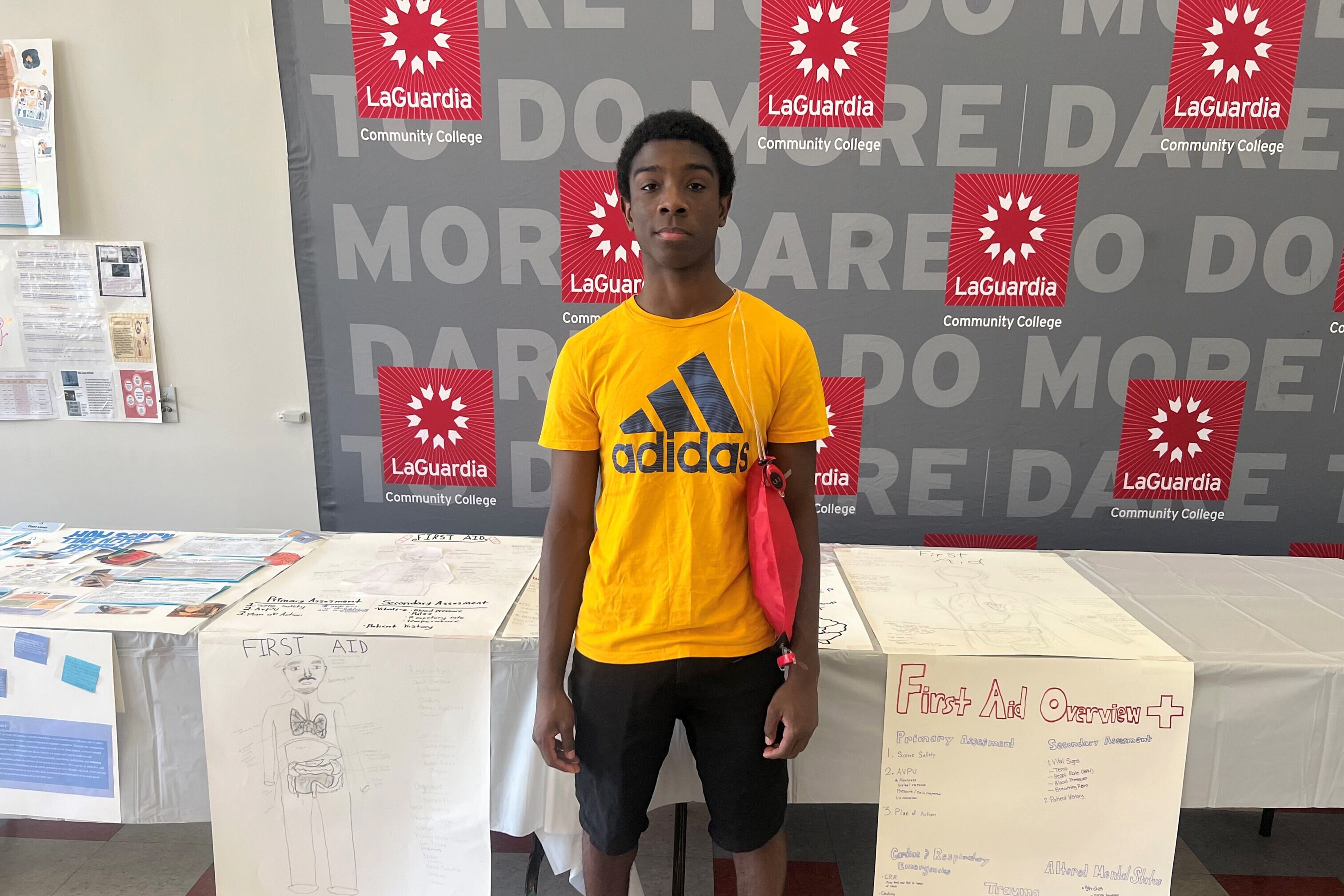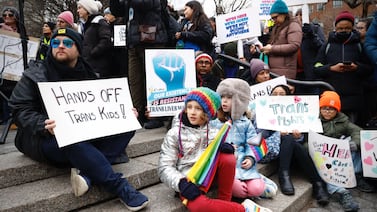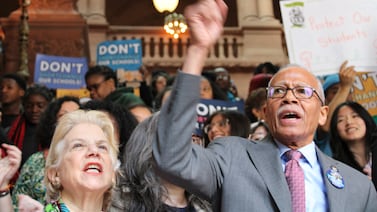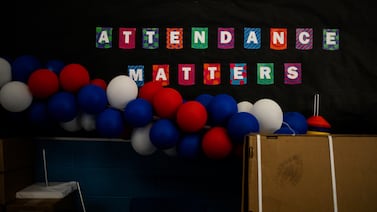Sign up for Chalkbeat New York’s free daily newsletter to keep up with NYC’s public schools.
Jahsani Peters, a rising senior at Forest Hills High School in Queens, said that two years ago, he didn’t think about community violence at all.
At the time, he’d been looking for work as a barista, eager to earn extra income over the summer. But after striking out, he applied to the city’s longstanding Summer Youth Employment Program and got placed through LaGuardia Community College with Community Capacity Development, a Queens-based nonprofit that works to support marginalized communities and prevent gun violence by fostering neighborhood healing and growth.
Peters said he was thrilled to find paid work and eager to impress his managers. In the time since, though, he’s begun to think more deeply about community violence and seen firsthand how organizations like CCD are making a difference.
“We don’t have to leave it up to the police to make sure our people are all right,” he said.
This year, Peters spent his second summer working with CCD through the Summer Youth Employment Program, or SYEP. He said he’s spent days canvassing residents of Woodside Houses and helping connect community members with critical resources. It’s been rewarding work, and he feels the organization has made a difference in the community, Peters said.
“We just try to help people see the good in life,” he said. “That there are other ways to handle problems without violence or having to raise your voice and get crazy with somebody.”
For decades, SYEP has provided the city’s young people with paid opportunities to explore possible career pathways. It’s also expanded in recent years, with Mayor Eric Adams adding 25,000 seats in 2022, bringing it to 100,000 spots in total. Last year, the program made an additional commitment to matching LGBTQ+ youth with “supportive work opportunities.”
City officials say the program can improve school attendance, reduce incarceration rates, and help keep young people safe over the summer.
The Department of Youth and Community Development, which oversees SYEP, noted that young people are increasingly working with violence interruption organizations and other groups seeking to reduce local gun violence. This year, more than 650 young people worked with 12 “Cure Violence” partners that use violence interruption strategies, while more than 1,000 were placed across 36 organizations through the city’s Anti-Gun Violence Employment Program, according to DYCD officials.
“These programs are transformative for young people,” DYCD Commissioner Keith Howard said in a statement. “DYCD is proud of Jahsani and his peers for contributing to the city’s economy, and helping to keep New Yorkers safe.”
Community-based violence intervention groups like CCD take a public health approach to stopping gun violence, with outreach workers who build personal relationships in neighborhoods, help to mediate local conflicts, and prevent retaliation before it occurs. Often, such groups also connect individuals with social services and counseling, as well as employment and educational opportunities.
“They’re able to stop the violence, and have conversations, and mediate conflicts,” said Judy Fears, a community coordinator at CCD. “We don’t carry weapons. We don’t have bulletproof vests. It’s all words, and language, and talking to the community.”
It’s a model that has seen some measurable success around the country. In Baltimore, for example, a report on the city’s violence interruption program found neighborhoods saw homicides and nonfatal shootings decrease by 16 to 23% on average.
The city’s partnerships with CCD and other groups through SYEP are one part of its broader effort to address community violence, particularly its impact on young people.
In 2022, the city launched Project Pivot, partnering hundreds of schools with a range of community groups that provide mentorship, counseling, and violence interruption programs. This year, the city also kept some summer youth programs open later to offer kids more time in supervised settings and to help reduce the risk of crime.
Though violent crime has trended down over time, particularly in New York City, some surges did occur around the country as the COVID pandemic upended life and disrupted efforts to reduce violence. Nationwide, firearm injuries were the leading cause of death among children and teenagers in 2020 and 2021, according to the U.S. Centers for Disease Control and Prevention.
For Peters, employment through SYEP has meant an opportunity for personal growth. Before, he said he didn’t know the basics of the workplace, like what a resume was or how to successfully apply for a job. At CCD, his coworkers have taken him under their wing and taught him how to thrive in the workplace.
With a laugh, Peters said the extra income from the program has helped fuel his “spending problem.” He’s hoping to upgrade his phone soon, with additional storage he can devote to editing videos and music.
“Being realistic and serious, though,” he added, “the money has helped me learn independence and money management.”
Canvassing in the Woodside community has also helped him step out of his shell, learn to be more social and overcome his nerves when interacting with others. It’s taught him to better resolve conflicts in his own life, too, Peters added.
“It’s changed me for the better,” he said. “Now, I’m more open minded. I think, ‘You know what, that person might have had a bad day. They might have lost somebody today.’ You never know.
“So I’m just like, ‘All right, I’ll give you space. I’ll let you say what you’ve got to say,” Peters added. “And when you feel better, I’ll try to uplift you.”
Nate, a human justice ambassador who works with Peters at CCD, described him as “one of a kind.” Over the past two years, he’s seen Peters become more confident and outgoing, he said.
“At the Woodside office, 70 to 80% of the kids are from Woodside, so he didn’t know them at first,” he said. “But now, he’s like a leader to them.”
Julian Shen-Berro is a reporter covering New York City. Contact him at jshen-berro@chalkbeat.org.







